Guide to manage negative comments online:
- Celebrating positive mentions is important, but that’s another topic, always a rule number one, if you’re going to be on social, you need to be social and you need to interact with all your audiences. However, you cannot please all of the people all of the time and if it can go wrong, it probably will go wrong.
- Avoiding social media does not mean you avoid negative comments and ignoring negative comments, they can have a negative business impact.
- Majority percentage of us have stopped doing business with a brand due to poor service.
- Half the percentage of us expect a response to a question within one week, or they stop doing business with them altogether.
- Managing the negative comments carefully can actually add value. It’s 10 times cheaper to keep an existing customer than it is to win a new one. Therefore it must be understood that responding pays, majority percentage of the customer or followers who do receive a response go on to recommend the brand or a product
- Only one rule is to plan ahead and don’t wait until something goes wrong, start the dialogue immediately by defining your internal policies.
- Have a list of people who will be responsible for dealing with issue
- Create a list of emergency contacts in Legal, Pubic Relation and Corp Communication Teams
- Educate all relevant people on your internal polices, and rehearse a few use cases prior to launch
- Make sure everyone can find the internal policies easily in the event of a crisis
- But what should your policies and procedures define? Firstly, it should set the house rules for your social media communities and things to include in community rules are as below
- Legal or compliance angles
- Definition of ‘troll’ activity and how to manage it
- Handling promotion of competitors or solicitation
- Use of vulgarity or hate language
- Criminal activity
- Inappropriate content
- Spam, link baiting, or propagation of viruses or malware
- Internal Rules about confidentiality
- Managing expectations vs response times
- Right contacts to redirect serious matters
- Double check if the rules and their definitions which could create other issues and define your approach to dealing with negative comments or write ups or feedbacks.
Monitor, Evaluate and Take Action for better managing negative comments on social media:
- i. Identify issues as early as possible
- a) First, decide how you’ll monitor social media for relevant mentions
- b) Select the right social media listening tool for your needs – tools are there for every budget
- c) What should you listen for? firstly , specific brand or product name mentions, furthermore , other brand relevant mentions (your outlet name) and finally, Mentions of other important elements (competitors)
- d) Identify who will be responsible for listening and monitoring activities,
- ii. Where should you listen?
- a) Conversations people have with you in channels you own or control
- b) Conversations people have about you in channels you do not own or control
- iii. When should you listen?
- a) Set up auto-alerts that trigger an action when something important happens
- b) Task a person to check mentions at regular intervals to identify the need for action
- Agree on the severity of the issue, and who is the right stakeholder and capture relevant activity as soon as you observe it.
- Simple assessment is as below
- No incident
- Ignore (‘troll’ activity – does not worth a response)
- Delete (comment or post that disregards ground rules)
- Acknowledge (even if resolution not required)
- Resolve directly
- Escalation required (call the Manager)
- Does the issue need a resolution, or just a generous acknowledgement? At the same time watch out for wildfire issues that other people add fuel to the fire and share. Thumb rule is never feed the trolls and all the social media in charge person should be aware of legal and regulatory and compliance requirements.
- Assign or escalate any issues where necessary as per your internal policies and Consider ethical issues (e.g. should a Cigar brand reply to minors?) Log incidents for later reference and to identify training opportunities.
- Manage each issue as efficiently and effectively as possible, before you do anything, take a deep breath and count to ten
- How you handle the issue is often more important than the issue and see few response guidelines
- Respond quickly and carefully
- Think and act like a 5-star concierge
- Let your customers and followers know you care them
- Identify the real issue
- On timing and potential outcomes
- Work with different teams for a resolution
- Fortify the company your work for, but act like a human
- Don’t overreact, and never lose your temper, use personality and humour where possible, but be careful and sensitive and don’t delay your initial response,
- Letting people know that you’ve seen their post and that you’re following up and addressing the underlying issues and delivering some form of actual resolution. Start with a simple acknowledgement to show people you’re working on it and let people know that their feedback is genuinely important to the brand
- People who take the time to complain are 100% likely that they care about making a difference. Identify how much time will it take for a final resolution and set expectations accordingly
- Treat everyone with the care and attention, this is to ensure you deliver the best service and make corrections where ever required. However, remember that emotions aren’t rational, so empathy is critical and apologise whenever the brand is at fault, but beware of legal implications
- If the response could be misinterpreted, or even make the situation worse? It’s always good to get a second opinion before replying to sensitive issues and make sure you understand the legal implications of your response. Ensure your responses fortify your brand’s values and positioning
Top 10 Important Points – Managing Online Negativity:
- Define your community ‘house rules’
- Select the right listening tools
- Identify the people responsible for monitoring
- Identify and engage your emergency contacts
- Agree what to monitor for and which channels to monitor
- Understand legal, regulatory and ethical requirements
- Create your severity framework and its classification
- Define your incident logging process and protocols
- Define best practices based on past experiences
- Formulate a feedback loop to help remedy essential causes



